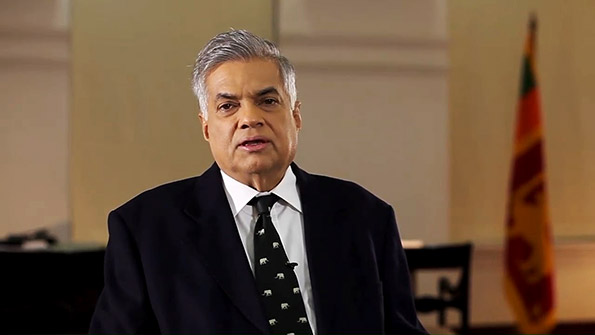Sri Lanka hikes VAT, taxes capital gains before IMF loan talks

Sri Lanka will raise its value added tax and reintroduce capital gains tax to break out of a debt trap, Prime Minister Ranil Wickremesinghe said on Tuesday, ahead of talks on a $1.5-billion loan it is seeking from the International Monetary Fund.
Sri Lanka’s finances are under scrutiny after ratings agency Fitch last week downgraded its sovereign rating by a notch, to “B+”, spurred by a ballooning fiscal deficit, rising foreign debt and sluggish growth prospects.
It also faces a balance-of-payments crisis after a third of its foreign exchange reserves was depleted within the 15 months to January by the central bank’s defence of the rupee currency, pressured by heavy debt piled up under the previous government.
“This crisis can be overcome only by reducing the budget deficit and a medium-term joint financial programme aiming at suitable reforms to reduce the debt burden,” Wickremesinghe told lawmakers.
Taking action to boost revenues, he announced that VAT would be hiked to 15 percent from 11 percent, while capital gains will be taxed for the first time since 1987.
Wickremesinghe said the government owed 9.5 trillion rupees ($65.6 billion), as he revised some of the main budget numbers presented in November.
He said the former government headed by Mahinda Rajapaksa has not included 1.04 trillion rupees in borrowing by state enterprises in the national debt, which was estimated at 8.48 trillion rupees at the end of last year.
The prime minister, also the minister of policy planning and economic development, said the country has to pay 1.21 trillion rupees on its debts this year, including 562 billion rupees in interest.
The IMF has long called on Sri Lanka to reduce its budget deficit, raise revenues, and bolster its foreign exchange reserves. These are likely to be the main conditions for the grant of a loan, economists say.
Sri Lankan shares fell more than 2 percent on Tuesday, hitting a near two-year low on concerns over the government’s possible tax hikes to qualify for what the finance ministry expects will be a $1.5-billion IMF loan. [nL3N1633XT]
The uncertainty over taxes also hit the rupee LKR=LK currency.
“The government is responding to an urgent revenue need,” Anushka Wijesinghe, the chief economist of Sri Lanka’s main business chamber, told Reuters.
“But ad hoc tax policy changes like these will hurt investor sentiment. The credibility of the budget is lost.”
($1=144.8500 Sri Lankan rupees)
(Reuters)

Latest Headlines in Sri Lanka
- CID raids Kataragama Basnayake Nilame’s house in search of IGP Deshabandu March 10, 2025
- Sri Lanka’s remittance inflows continue to grow in February 2025 March 10, 2025
- IGP Deshabandu Tennakoon seeks court order to block arrest March 10, 2025
- Chamal Rajapaksa to contest Local Government Elections under SLPP March 10, 2025
- Aloe Blacc arrives in Sri Lanka to explore investment opportunities March 10, 2025



It is the same old yarn that the spokes persons spin in connection with the budget deficit and the balance of payments. A yarn is not as bad as a blatant lie for it sounds clever and the right thing to do to impress the lenders and consumers complacent. Obviously ranil, ravi and mahendran has not come up with a story to convince the IMF nor have they been able to influence anyone to guarantee a loan. So as far as the IMF is concerned 1.5 billion is something that can be written off as has been the case over time.
Ranil at last has come up with some real figures in connection with the economy. 9,500,000,000,000 rupees in debt so the $65,600,000,000 of this how much is foreign debt and the nature of this debt.
Do these figures correspond to what the IMF perceives and if there is a significant difference then there is lack of credibility. This can be resolved by passing the buck to the R but then there is a lot money that cannot be accounted for.
Ranil ought to take a hardline if he is to reverse the trends. For starters members ought to be put on some sort of subsistence allowance for they do nothing productive apart from gossiping and feeding on subsidised food.
Then all import of vehicles and spare parts be put on hold for at least one year, levy taxes on petrol.
Ban the import of potable alcohol and allow brewing of alcohol made legal and promote the cultivation of Cannabis (it is legal in most states of US, Europe (except UK) and Australia)
Public transport is a menace in Sri Lanka there are more deaths attributed to road deaths than doctors killing patients. So the relevant ministries ought to develop a strategy to deal with this situation.
” $1.5-billion loan it is seeking from the International Monetary Fund”.
When you get this spend it on luxury cars and palaces until you get further loans. Never mind the public services like railways and transport services, and hospitals.
How are you going to pay back these loans?